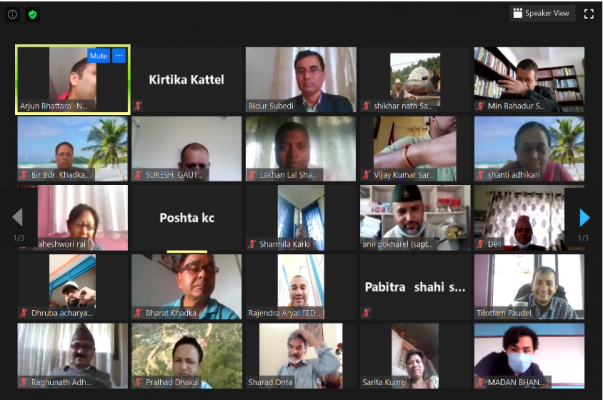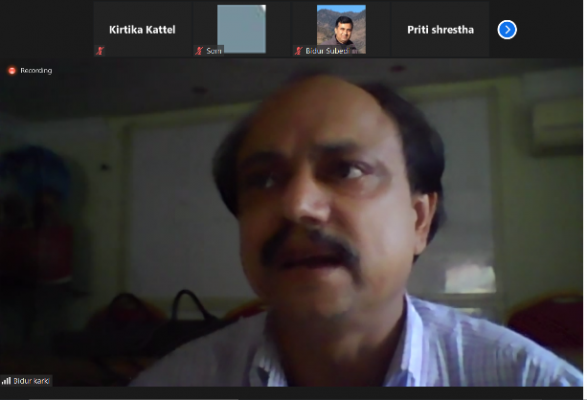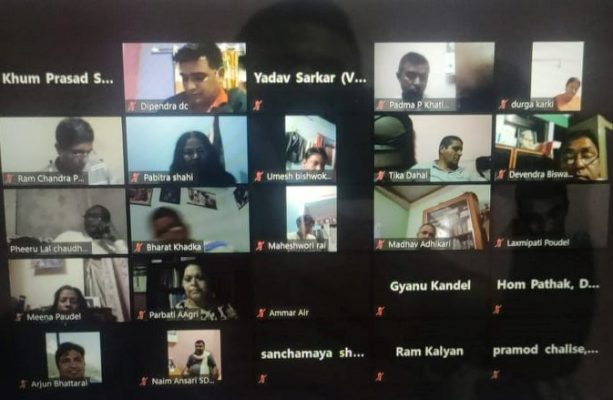11th January 2019, Katmandu:
Over 8 million Nepalese live in poverty, women, and girls are poorer, and a third of children under the age of five are stunted says the report “Fighting Inequality in Nepal” launched jointly by Oxfam, Humanitarian Accountability Monitoring Initiative (HAMI), and South Asia Alliance for Poverty Eradication (SAAPE) today in Kathmandu.
The report seeks to create an understanding of the context and drivers of inequality in Nepal, and offer evidence-based recommendations that can support the government’s commitment to tackling inequality. The report highlights cause for optimism in the progressive national constitution adopted last year and proposes that Nepal will put right policies to build a more equal country that leaves no one behind.
In 2010/11, Nepal had one of the highest income Gini coefficients in the world at 49.42, and the gap between rich and poor has increased considerably in the past fifteen years. The richest 10% of Nepalis earn three times more than the poorest 40%. The richest 10% of Nepal’s population has more than 26 times as much wealth as the poorest 40%. This gap will continue to worsen further unless stopped and reversed.
A major driver of this staggering level of inequality is highly unequal land distribution. 7% of the wealthiest households own around one-third of the country’s agricultural land, half of Nepali farmers own less than half a hectare of land, and 29% of the population have no land at all.
Women and girls are worse off both in economic wellbeing and land ownership. While they work long hours in farmlands, other industries, and in homes, the value of their work is not recognized, and a large majority (81%) have no land ownership. Minorities also suffer disproportionately due to the inequalities.
“We encourage the Nepalese government to move away from the outdated neoliberal policies which have led to tax structures that favor wealthy and corporations at the expense of the citizens, especially those poor and underprivileged. Because rich and business pay little in taxes, the government has little money left for public services like health, education, and social protection”, said Cecilia Keizer, Country Director of Oxfam in Nepal.
“Privatization of public services has ignored the needs of poor people, women, and minorities; for instance, a poor family in need, can’t get quality medical care because it’s too expensive. There’s just one doctor for every 1,734 people in Nepal“, said Dr Netra Timsina, Regional Coordinator, SAAPE.
He further added, “We ask the government to introduce more progressive taxes, where business and wealthy pay more. The government must also close any loopholes that allow those with power and money to avoid paying taxes. Indirect taxes which are regressive still account for more than 2/3 rd s of the revenue.”
Geeta Pandey, Coordinator of HAMI, said that public spending, in health and education, plays a pivotal role in unleashing the growth potential of all people and creates more equitable societies. In education, we need to invest not just more money but also untangle geographical and cultural constraints which at present prevent 2/3 rd s of students going beyond grade 10. Only 6% of the girls complete primary education. This is appalling, and we must invest in keeping them in schools so that they have a brighter future, instead of being pushed into child labor and marriage.
Cecilia Keizer, Country Director, Oxfam in Nepal emphasized that government of Nepal need to prepare a national action plan to address inequality. To make the plan it is important to collect accurate data on economy, income and wealth distribution.
She further said that the government should scale up free public health and education systems that can meet the rights of every Nepali and enable them to fight inequality.
//Ends
Notes to the editors:
The report is available for download at: http://policy-practice.oxfam.org.uk/publications/fighting-inequality-in-nepal-the-road-to-prosperity-620607
For further details please contact Dr Padma Khatiwada at padmapd70@gmail.com, Cell: 9851009532 or Geeta Pandey at gpandey@kirdarc.org, Cell 9841541591.



